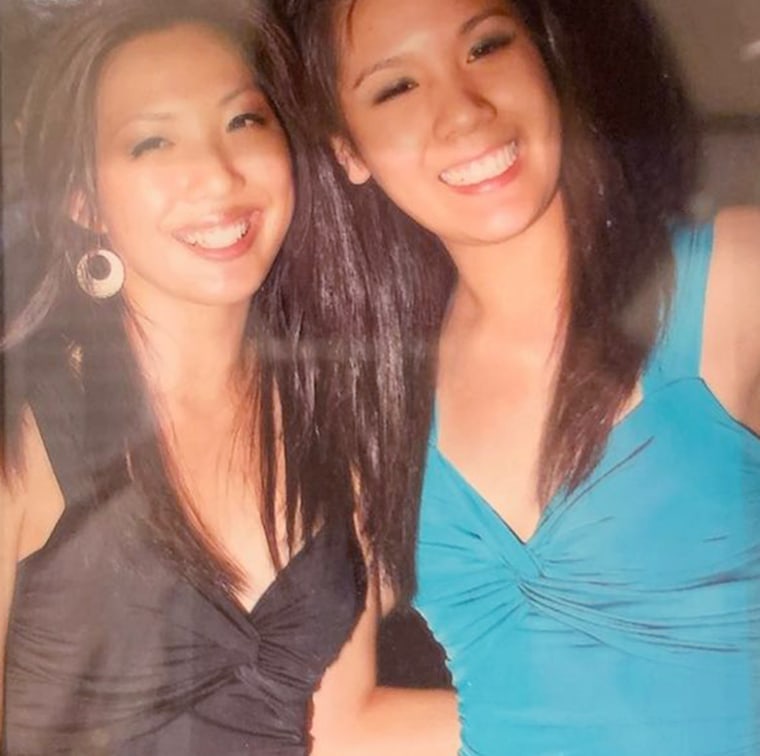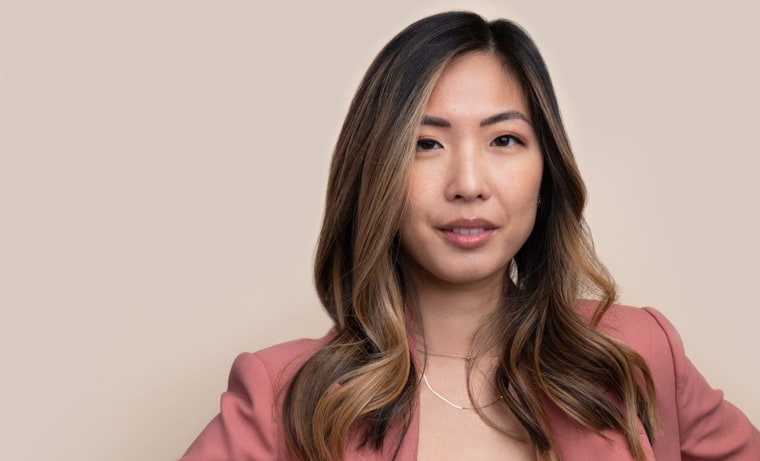Growing up, Jaclyn Fu knew she wanted to start her own company, so she carried a notebook around with her and wrote down every idea that she thought might help her get there. One day, while on a road trip with her family, she jotted down four words that set her dream into motion: bras for Asian Americans.
"I felt like I was never really represented in the bra industry," Fu, now 32, told TODAY. "I usually don't see Asian women in general being portrayed as desirable or sexy in a non-fetishized way."
"Also body type," she continued. "Most bodies you see that model lingerie, aka Victoria's Secret models, are very busty, and that's always what I wanted to look like."
While Fu originally imagined her company, Pepper, based in Denver and founded in 2017, as a bra company for Asian Americans, through conversations with friends, she realized that its appeal could be much wider.
"This pain point that we felt of not being represented because of having small chest size or ... bras not fitting, it expanded beyond Asian Americans," she said. "That's how Pepper as this broader concept of (bras) for all small-chested bodies was born."
Prior to starting Pepper, Fu recalled that she'd often wear bras that didn't fit right, ignoring uncomfortable cup gaps and forcing herself into push-up bras to try to look a few sizes bigger.

"That's what society taught me was beautiful, and for the longest time, I hated being small chested. I always strived to have cleavage," Fu recalled, adding that her struggle with her body image started around puberty.
"That's the time where girls start learning femininity equals developing ... and developing equals your breast size," she said. "To turn into a woman ... meant that you should be developing your breasts. For someone like me, who never really had that experience, there was a lot of ... 'Oh, am I not enough? Does this mean I'm not desirable or sexy in this typical societal view of body standards?'"
Pepper, she said, tries to combat this mindset by letting "small-chested women embrace their bodies exactly as they are."
The idea resonated widely. When she and co-founder Lia Winograd launched their Kickstarter campaign in 2017, it was fully funded within 10 hours and generated a 2,000-person wait list.
"A lot of people typically think of small-chested women as petite, skinny white women, because that's what they saw, but for us, we see trans women, Asian women, we see women who just finished nursing," Fu said. "What's really powerful is that there's so much diversity in our community."
Pepper also offers plus-size bands. "It's really hard for plus-size women to find smaller cup sizes because most companies think if you're plus size, you must have double D's or Gs," Fu said.
For bra wearers with large breasts, the idea that people with smaller chests also struggle to find well-fitting bras may come as a surprise. When Fu pointed this out to Winograd before they started Pepper, she remembers Winograd responding, "I thought every bra fit you."
"I'm like, 'No, no, that's not the case,'" Fu recalled. "It comes from this place of, 'Who am I to complain about my body image struggles? Everyone has it so much worse.' But then I realized my feelings are very much valid. All these years of longing for a different body type and compromising on the fit of my bra, it all adds up."
"One day, I was just like, I don’t want to feel like that about my body. I want to love it," she continued. "That’s when I started thinking, what would make me love my body? ... When I talked to my friends in the very beginning ... there was a sense of defeat and compromise with the solutions they had in the (bra) market. The really sad part was no one was paying attention to all these different groups and their pain points, and no one really understood why things didn’t fit them. These women just relegated to, 'I've just got to deal with what I have. I’m going to have a cup gap, things aren’t going to fit. Oh, well.'"
"We have been underserved by traditional bra industries, and it is really harmful that so many young girls feel like they need to look bigger," she added.
When Fu thinks about the time she's spent wanting a different body, moments where "I (wished) I was white" also come to mind. "I have a monolid and that's always, in addition to my smaller chest size, been the second thing. I'm like, 'If only I had a double eyelid.'"
But she's been able to use her experience as an Asian American woman to create bra marketing that challenges stereotypes around people who look like her.
"If you look at our websites, social media, all of our models and photography are done in a way that's very confident and bold and unapologetic. It should not feel like a sexy boudoir shoot," she said. "It's for the female gaze. It's for those everyday moments where you want to feel confident and bada--."
RELATED: Why are bras so expensive? 4 factors behind bra cost and tips to find a good one
Recently, Fu has been channeling this mentality into her own life. A few days ago, she went out in public wearing a bra and blazer.
"To just be out in public like in a bra with my small chest, owning it, I never would have done that ... even a few years ago," she said. "I never felt hotter."
